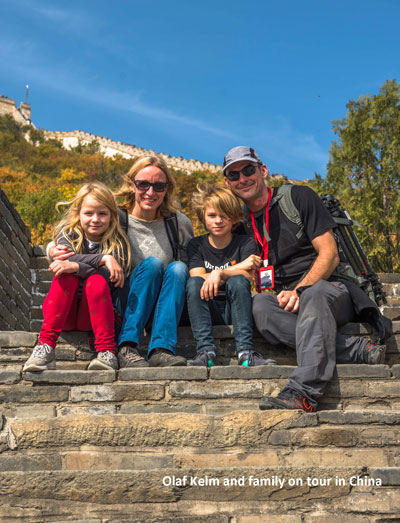 It’s a small world, as the adage goes. In March, I joined the International Human Frontier Science Program Organization as Chief Operations Officer, and this dictum has been confirmed yet again.
It’s a small world, as the adage goes. In March, I joined the International Human Frontier Science Program Organization as Chief Operations Officer, and this dictum has been confirmed yet again.
Just recently, I was talking to a good friend whom I hadn’t seen in a while and when discussing our career paths, he told me it was an HFSP research grant that greatly contributed to making his PhD so successful. Call it perception bias, and there is certainly plenty of that, but I am struck by just how many times in my former professional life, I came across HFSP. One of the most notable examples is the Art of Grantsmanship, a guide written by former HFSP Director of Research Grants, Jacob Kraicer. It served as a reference for the grant writing workshops that I helped organise during the last 13 years. While employed by the European Commission, I had the privilege to work closely with three former HFSPO Trustees. Other Trustees are also active in the governance of my previous workplace, the International Agency for Research on Cancer (IARC), a specialized UN Agency dedicated to cancer prevention research. The Vice-Chair of the IARC Governing Council confided that an HFSP grant he obtained early on in his career was a game changer for him.
So, although I was already fairly familiar with HFSP when I started, it is thanks to the warm welcome of my colleagues in Strasbourg that I got off to an excellent start, and my sincere thanks go to all of them. However, it turned out to be a rather unusual onboarding exercise. Only four days into my new assignment, work in the offices came to an abrupt end, when the world went awry with COVID, and the French Government decided to send France into lockdown. We have been working remotely ever since.
What motivated me to join HFSPO? There are really three main reasons: firstly, the role of HFSP, the esteem in which it is held, the research it funds, and the impact it has made on the careers of many excellent scientists. The Organization clearly occupies a unique position in the global research funding landscape, catalysing and fostering frontier research through international collaboration. Being part of this global program is a great privilege. Secondly, international research has been somewhat of a leitmotiv throughout my professional life, having studied in Germany, Spain, Switzerland and Australia and worked in Belgium and France. On the latter, the Directorate General for Research and Innovation of the European Commission and WHO’s International Agency for Research on Cancer are platforms for international collaboration, the first as a funding organization and the second as an international research centre set up to foster collaboration in cancer research. Thirdly, I am passionate about research administration, and from many years in this field, I have developed a vision for efficiency in supporting the pursuit of science, which I hope to bring to bear on HFSPO operations.
As COVID continues to hold the world in its grip, the need for high quality research is evident every day. At the same time, the multitude of frenzied scientific activities across the globe has also brought into stark relief the importance of collaboration and coordination of efforts. These basic principles are precisely what HFSP stands for: excellence in research and coordination of international efforts.
In a way, one could say that in bringing the best scientific minds closer together no matter the location of their laboratories, HFSPO really demonstrates the adage mentioned in my opening remarks. In this sense, I am happy to have arrived in a place where I can contribute to making the world a little bit smaller still.


































